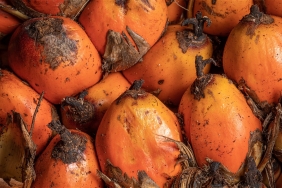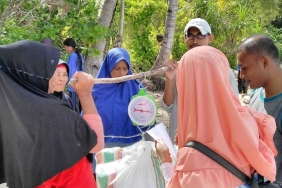KUD HARAPAN JAYA : TOWARDS INDEPENDENT AND SELF-SUFFICIENT PALM OIL PLANTATION
The year 2023 marked a positive milestone for the Village Unit Cooperative Harapan Jaya (KUD HJ) as it obtained its second RSPO certification in the Sintang Regency, West Kalimantan. Not only an oil palm smallholder institution, it has become a symbol of success in applying sustainability principles in natural resource management. Established on September 5, 2001, in Dak Jaya Village, Binjai Hulu Subdistrict, Sintang Regency, West Kalimantan Province, KUD HJ has become a model for smallholder cooperatives in Indonesia.
KUD HJ operates many businesses, including the sale of Fresh Fruit Bunches (FFB) to members, savings and loans for members, transportation of FFB for members, and heavy equipment rental. However, its achievements go beyond mere business aspects. The cooperative is actively involved in social activities such as providing free ambulance services for the village and surrounding areas, road repairs, education, and healthcare. In 2023, KUD HJ allocated social funds amounting to Rp. 112,000,000 IDR or approximately USD 7,100 to support various social initiatives in surrounding areas.
Since 2021, KUD HJ has taken tangible action to implement sustainable oil palm management. Collaborating with WWF Indonesia, the Department of Agriculture and Plantation of Sintang Regency, and Fortasbi, the process towards RSPO (Roundtable on Sustainable Palm Oil) certification began. On May 11, 2023, KUD HJ officially joined RSPO as a member with membership number 1-0447-23-000-00[1].
This success is impossible without the high commitment of KUD HJ and close collaboration with various stakeholders. The cooperative not only achieved RSPO membership but, on December 13, 2023, KUD Harapan Jaya obtained RSPO Milestone B certification with certificate number RSPO 793548. This certification is recognized for 283 smallholders with an area of 742.93 hectares and a FFB production of 15,409.01 tons per year.
The success of KUD HJ in obtaining RSPO certification is evidence that efforts to implement sustainability in the oil palm industry are not an impossible task. As a successful example of farmer self-help activities, KUD HJ demonstrates that with hard work, cooperation, and commitment, positive outcomes like RSPO certification can be achieved.
RSPO membership provides tangible benefits for smallholders, including incentives through credit sales schemes. This not only boosts their economy but also encourages sustainable practices in palm oil plantation management.
KUD Harapan Jaya has now become a pioneer in sustainable practices in the oil palm sector and also an inspiration for other smallholder cooperatives. Their success illustrates that success is not only measured by economic aspects but also by the positive impact on the community and the surrounding environment.
In conclusion, KUD Harapan Jaya proves that sustainability is not a problem but an investment for sustainable long-term benefits and environmental well-being. This further emphasizes that self-sufficient smallholder cooperatives can compete and adapt to various global market regulations, such as the EU Deforestation Regulation (EUDR).




